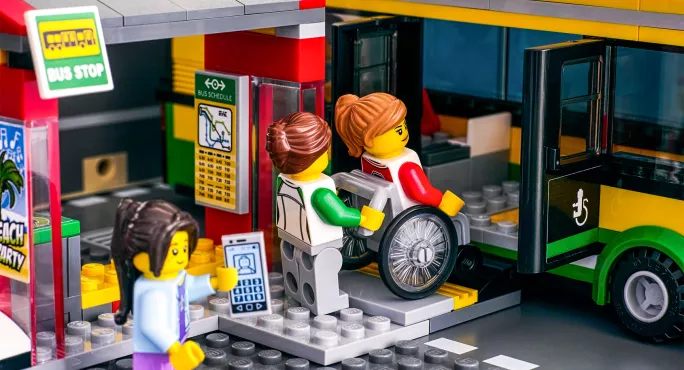Addressing ableism and representing disabled people positively in classrooms will be the focus of a new short course for education professionals.
The Disability Confidence for Education Practitioners programme from Queen Margaret University (QMU) in Edinburgh “aims to move away from individual adjustments for disabled pupils in hurried response to their arrival in the classroom”, which the university says “can unintentionally marginalise disabled pupils”.
Instead, the online course seeks to give teachers “the tools to create an inclusive and accessible environment that celebrates disabled people’s lives”.
Changing book selections and classroom displays
Changes could centre around both teaching practice and the school environment, including classroom displays and the selection of books available.
QMU senior psychology lecturer Dr Clare Uytman said: “The language we use when discussing disability has a profound impact on younger generations. In children’s literature, toys and media, a gradual but meaningful shift is taking place.”
Disabled characters should “no longer be relegated to medical settings or portrayed as ‘overcoming’ adversity” and she took encouragement that they are being “increasingly represented as full individuals with diverse personalities, talents and interests”.
Dr Clare Uytman added: “Toy manufacturers like Lego and Playmobil are creating more inclusive products, reflecting disabled people in everyday settings such as schools and parks, rather than in hospitals.
“This is a critical evolution that helps to normalise disability as simply another way of being, rather than a limitation and is a step to building a future where every child feels represented, valued and understood.”
The Paralympic Games have helped challenge perceptions of disabled people. However, those behind the QMU course for teachers say that the “focus has often been on the athletes’ impairments rather than their sporting accomplishments, [thereby] reinforcing outdated attitudes”.
Dr Siân Jones, a physically disabled senior lecturer in the psychology, sociology and education division at QMU, said: “This year’s Paralympics took a refreshing approach, promoting a more nuanced understanding of disability that rejected the notion of ‘overcoming’ impairments and urged the public to see the athletes for more than their athletic prowess alone.
“Referring to athletes as actively competing, rather than participating in their sport, removed the ableist filters of pity or patronising admiration.”
Language ‘powerful tool’ to change attitudes in schools
Dr Jones also said: “Language is a powerful tool for changing attitudes, and it is through this lens that educators can start to rethink how disability and ableism are discussed in schools. When disabilities are portrayed more prominently, particularly in the classroom, our research shows positive outcomes in children’s conceptions of disability and acceptance.”
QMU has launched the ToyBox Diversity website to share research evidence and free educational resources to help educational professionals talk positively about disability with children and to construct anti-ableist environments.
Meanwhile, teachers can also use the Disability Literacy in Education Settings Network, a platform for academics, professionals and other interested parties to discuss and advance research and practice in disability literacy and anti-ableism.
More information on the new course for teachers can be found on the Queen Margaret University website.
For the latest in Scottish education delivered directly to your inbox, sign up for Tes’ The Week in Scotland newsletter




